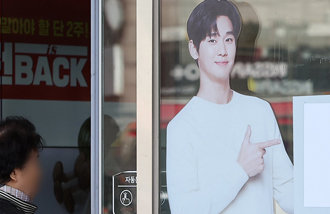Stress from a society obsessed with competition
Stress from a society obsessed with competition
Posted May. 13, 2023 07:41,
Updated May. 13, 2023 07:41
Korean modern history is marked by unparalleled success. Out of the 140 independent countries that emerged after the war, Korea stands out as the only nation that has accomplished both industrialization and democratization. It has become the first developing country recognized as a developed country, and Korean culture and lifestyle are increasingly attracting attention worldwide. Despite these remarkable achievements, a recent survey revealed that only about half of Koreans feel proud of their country.
A recent survey by The Dong-A Ilbo and the survey platform Tillian Pro revealed that out of 1,800 adult respondents, only 55% said they were proud to be Korean. Twenty-two percent answered they were “not very proud,” and the remaining 23% said, “I hate being Korean.” The survey results also indicated that three out of 10 (28.8-29.4%) of those in their teens to 20s expressed that they “hate being Korean.” Despite Korea's exceptional success in various fields, this achievement seems to have not necessarily translated into national pride or a sense of accomplishment.
As society progresses and individualism strengthens, the enhancement of national prestige is not necessarily translated into national pride. While it's true that the younger generation seems to be more dissatisfied with their reality, this survey also highlights certain Korean characteristics. When asked about the image that best matches Korea, many respondents answered “competitive” and “tired.” The compressed growth that Korea has experienced has resulted in an environment of intense competition and a focus on success, leading to societal dissatisfaction. The Korean spirit of constantly striving for improvement has enabled rapid growth but has also led to increased exhaustion.
In a society where competition is intense, more individuals fail than those who succeed. For those struggling, it can be difficult to feel proud of their country's success. Additionally, if individuals feel that no matter how hard they try, they cannot overcome the limitations of their socioeconomic background, it can lead to a sense of relative deprivation. The fact that the happiness level of Koreans is one of the lowest in the world may be related to this challenging social atmosphere.
When more people feel they have a stake in their country's success, it can increase happiness and strengthen social capacity. Respecting various values can reduce wasteful competition and ensure fair competition, providing a sense of security and trust that even in failure, there will be opportunities for recovery and a basic standard of living. Achieving these goals requires effective political leadership, mediating conflicts, and drawing consensus. We must take the survey seriously, which found that “K politics” was viewed as the most embarrassing word with the prefix “K” attached to it, with 52.7% of respondents expressing this sentiment.
Headline News
- Opposition parties pass amendment to Commercial Act
- Impeachment motions against top officials dismissed
- IU's residence ranked as the nation's most expensive apartment
- K-medicine saves 300 lives in Mongolia through liver transplant skill transfer
- Prisoners in N. Korean camps suffer from torture at minus 30 degrees







